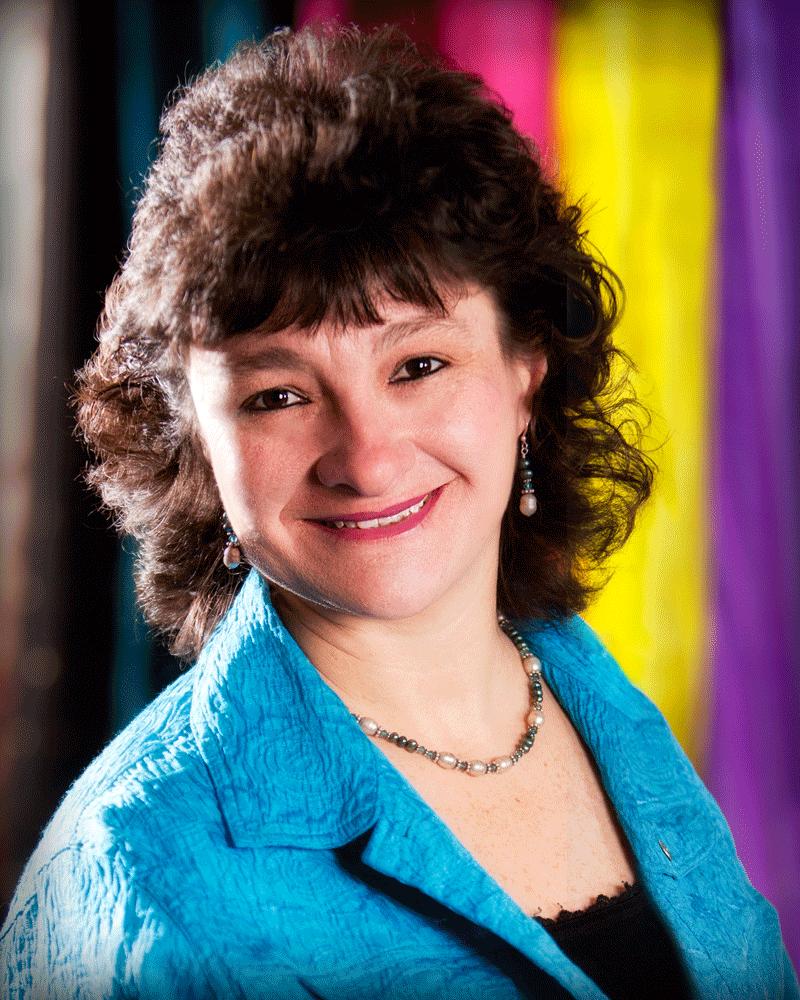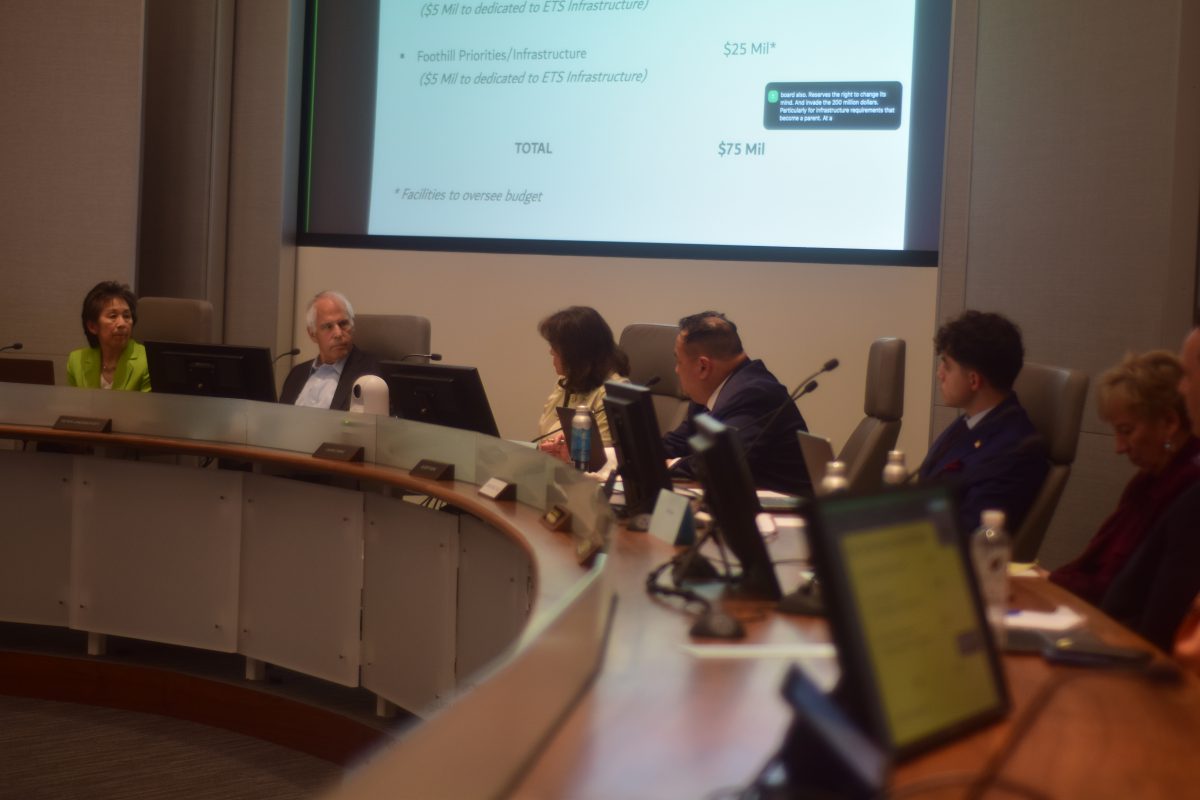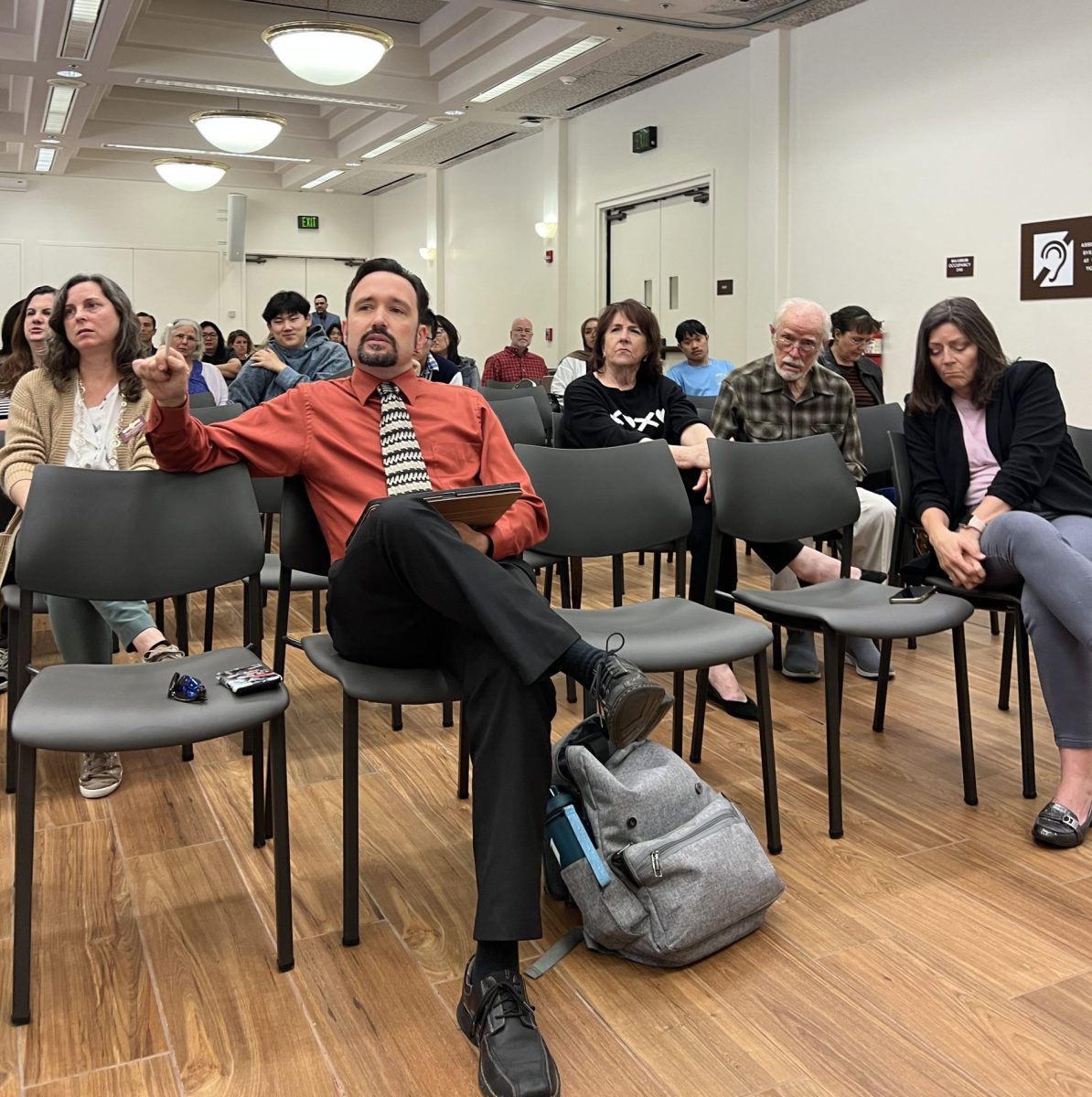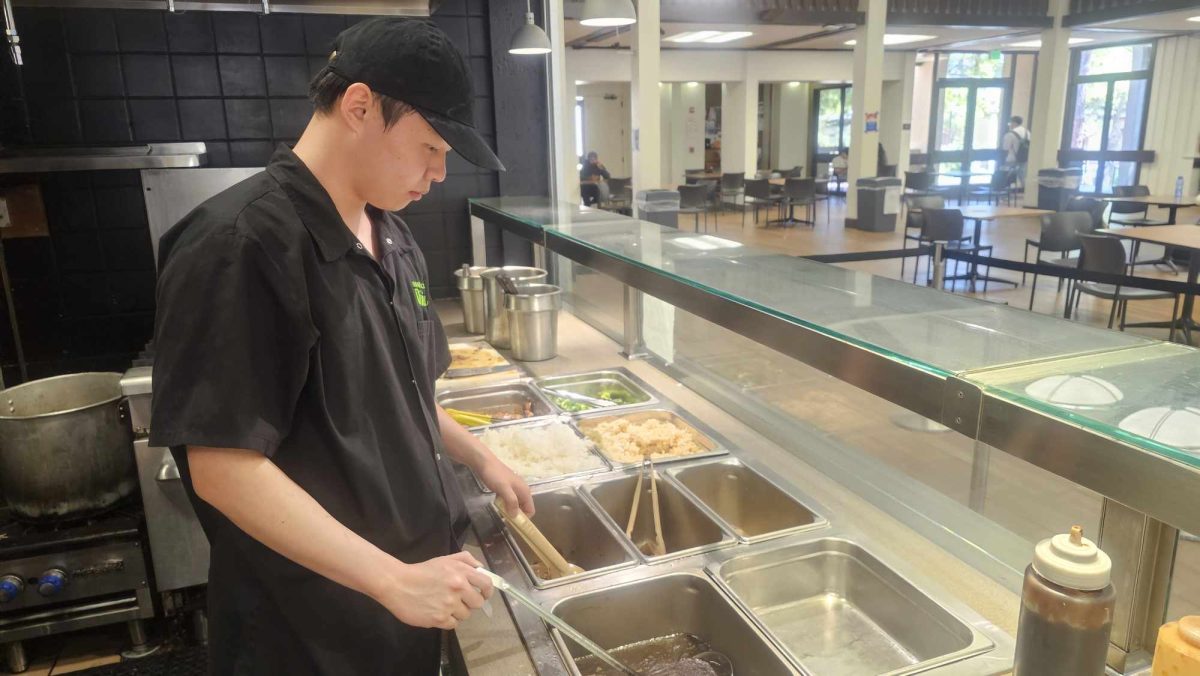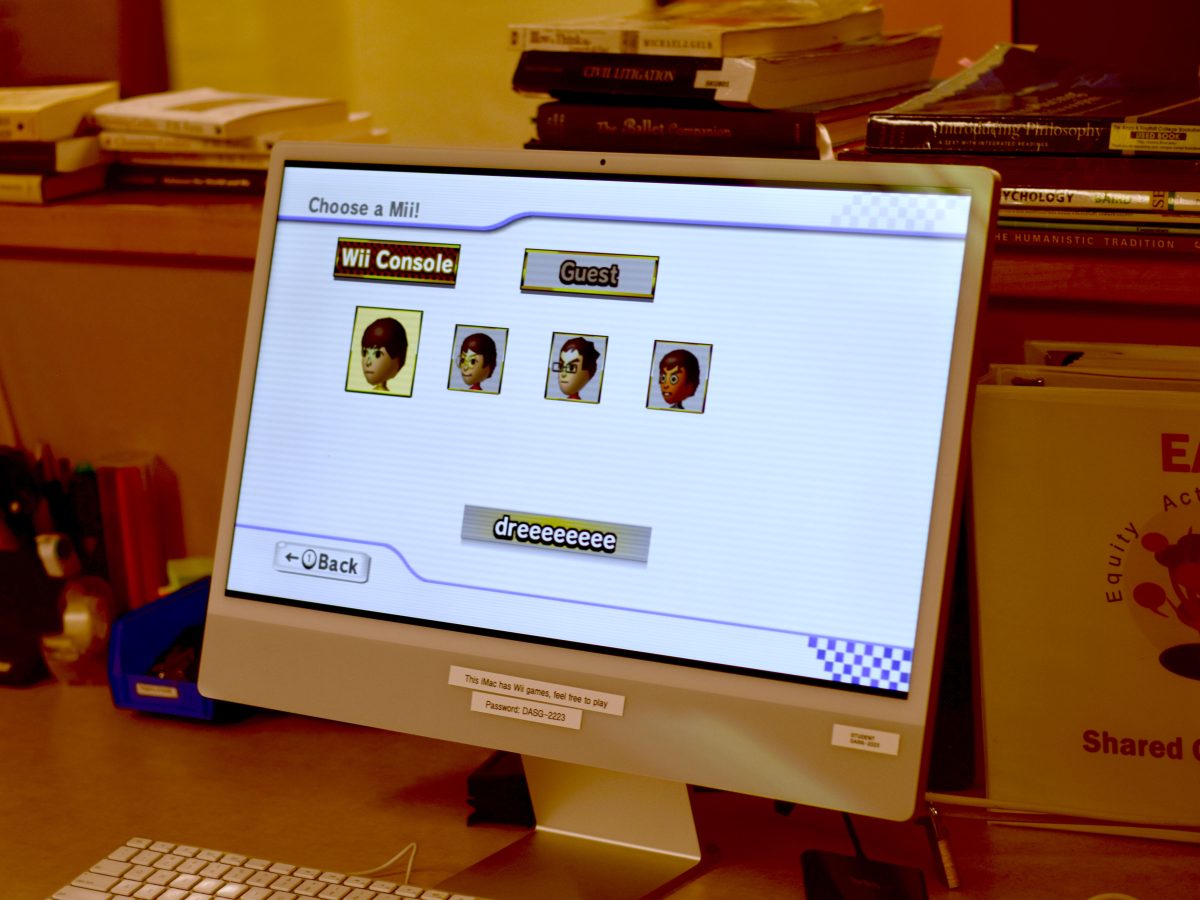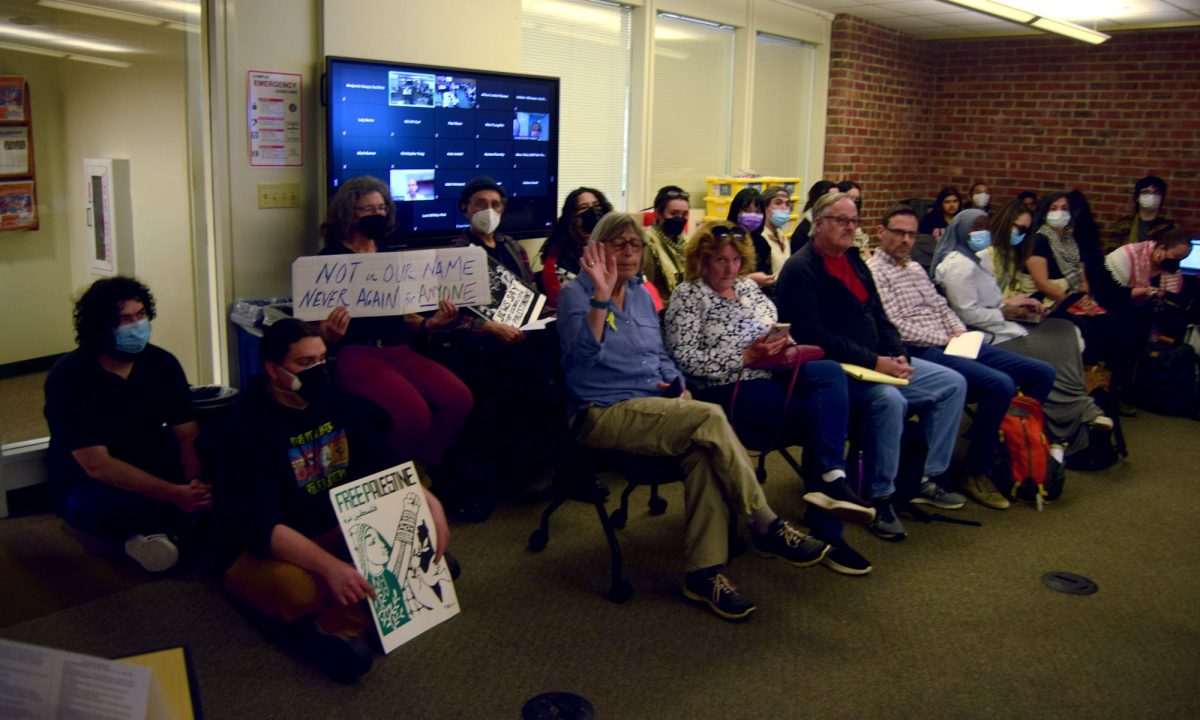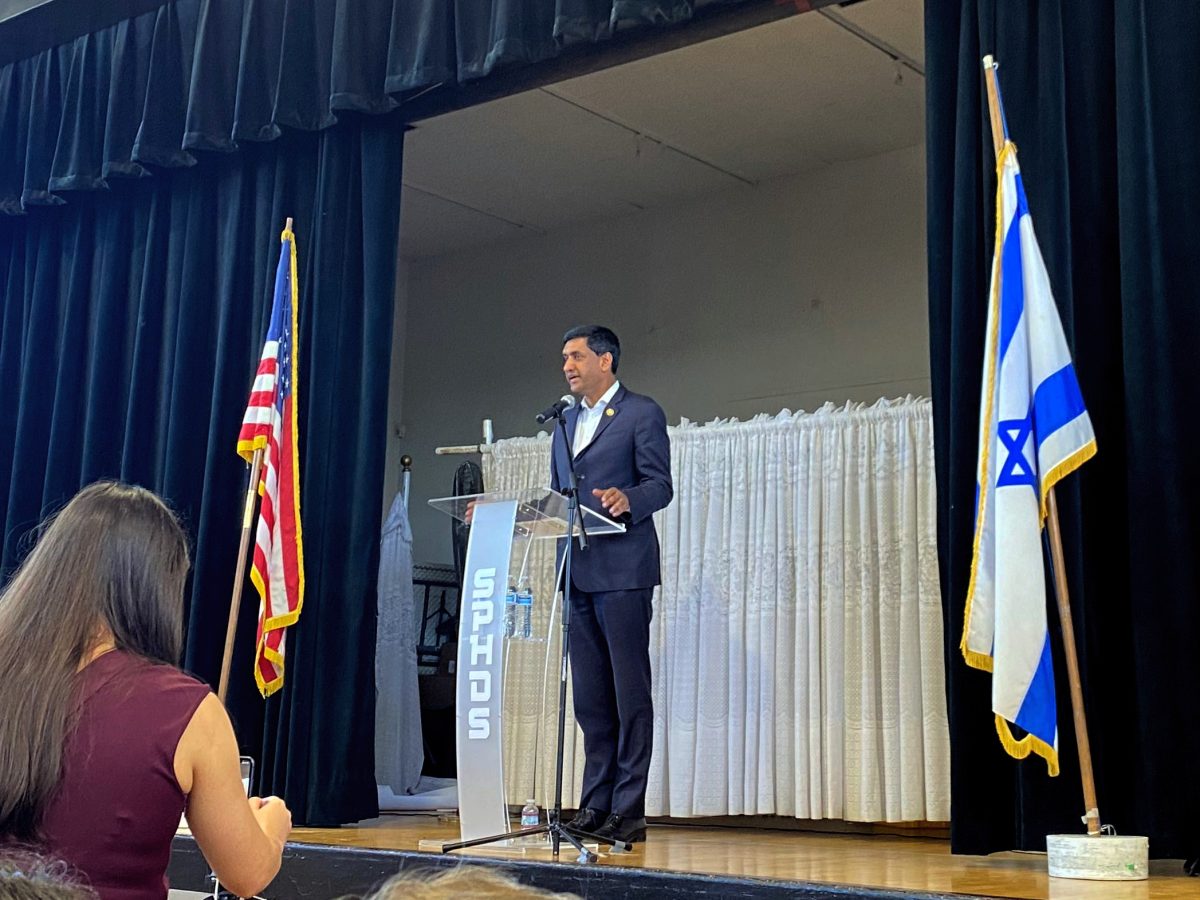“I was not raised to be a perfect anything,” author Graciela Tiscareño-Sato told a room of Foothill College students, responding to a question on where she and the other Latino entrepreneurs profiled in her book gained their willingness to take risks.
“The commonality is a childhood where they were allowed to try things and think and not be so afraid of how it looks,” she said. “The opposite of that is parents who shelter their kids.”
Tiscareño-Sato was invited as part of Foothill’s Authors Series to speak on March 13 about her book “Latinnovating: Green American Jobs and the Latinos Creating Them,” which highlights 10 Latino environmental entrepreneurs. Around 25 students, mostly from Scott Lankford’s English 1A honors class, gathered in the Hearthside Lounge in the campus center to listen.
“What I really liked … was the importance of giving yourself permission to be creative and to fail,” theater major Jaime Tuttle said.
Before showing a slide illustrating how used socks could be repurposed to create dresses for Barbie dolls, Tiscareño-Sato pointed out a similarity the people she profiled shared.
“They were taught to reuse, they were taught to conserve,” she said. “They were taught to think of the second and third life to give food and objects.”
Tiscareño-Sato said having discretionary income does not need to lead to a change in behavior. A culture of reusing items is not only fun for children, but gives a creative foundation that can be used as an adult.
She credited things like being allowed to draw on drywall in the basement and making mud bricks with siblings as providing a “foundation that gave me permission as an adult to create.”
She gave an example from her book of Humberto Rincon, a mechanical engineer who grew up in a migrant camp with eight siblings. He used bottle caps to make toy badges and whistles.
Another example from her book is Sandra Artalejo, a Dallas-based fashion designer. Growing up, she saw her grandparents turn coffee cans into footrests and aluminum cans into decorations for the garden. When she started her career in fashion, she was disturbed by how the industry discarded so much unused fabric.
Now Artalejo uses wine boxes, chip bags, aluminum cans and other “garbage” to create purses, headbands and other products.
Tiscareño-Sato also emphasized the importance of mentors in her and the other entrepreneurs’ decisions to go to college.
She said she was not expected to go to college by her family, but a counselor encouraged her and told her how the Air Force paid for her husband’s college expenses.
Tiscareño-Sato enrolled in the Air Force ROTC and went to UC Berkeley. After graduating, she was commissioned as a military officer and served for over nine years, including time as a navigator aboard KC-135 refueling jets.
“I think that all college students … can take a few minutes out of their lives and mentor,” she said in an interview the day after her talk. “Bring their neighbor kid to an event on the campus – that’s mentoring.”
Tiscareño-Sato also gave practical career advice, including a simple tip for aspiring writers.
“Just start writing,” she said. “There is no someday.”
She stressed the importance to “kick the editor out of the room” when first getting ideas down on paper and not to try to be perfect initially.
“It kills the creative process,” she said. “Just write, just get it out.”
Tiscareño-Sato talked of the importance of networking, telling students that they should reach out to people within their own ethnicity, gender and professions, while not allowing themselves to be restricted to any particular group. Students should also mention the networks they are part of when interviewing for jobs, she said.
Scott Madera appreciated the overall message Tiscareño-Sato brought.
“I liked her actually just talking about getting out there and doing stuff instead of waiting for something to happen,” said Madera, a 19-year-old computer science major.
Tiscareño-Sato talked about overhauling the image of Latinos. She said there were more than 3 million Latino-owned businesses in the United States, but that image of the community doesn’t make it into the press.
She said she wanted to “reposition” how Latinos are viewed by the public.
“I’m out to rebrand the word ‘Latino,'” she said.
Too often, Latino kids are only seen as socio-economically disadvantaged, and the advantages their upbringing offers, such as she wrote about in her book, are not recognized, she said.
“What I’m trying to say is let’s look at the child holistically,” she said. “Let’s look at these examples that you know about, and let’s see the creative advantage.”



